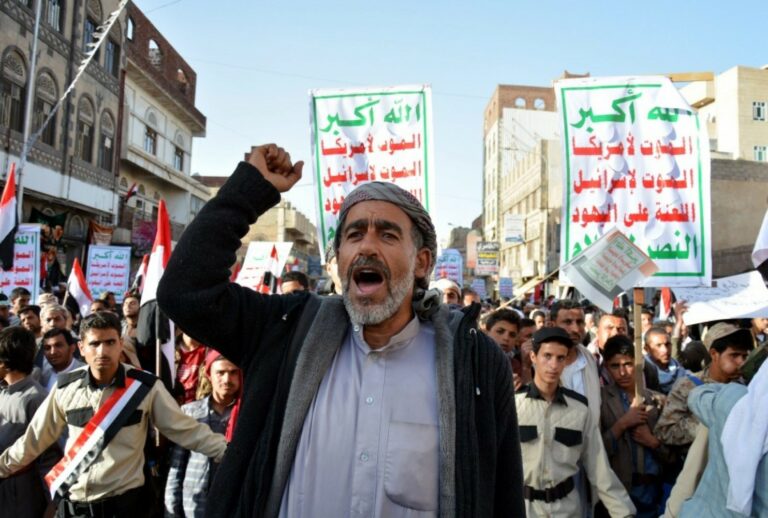An excellent « Public Statement on U.S. Policy Toward the Iran Nuclear Negotiations » – « Endorsed by a Bipartisan Group of American Diplomats, Legislators, Policymakers, and Experts »- was published by The Washington Institute yesterday, June 24.
The statement has our full support.
Except that it does not mention the requirement for Iran to reveal its past (and present) miniaturization (of nuclear weapons) programs– as French diplomats and experts in Geneva have insisted it should.
On the other hand, one feels uncomfortable with the ambigious paragraph concerning the Yemen crisis: “Expand support for Saudi Arabia and the UAE in pressuring the warring parties to the negotiating table while seeking to split the Houthi elements away from Iran.”
For, irrespective of our differences with the Saudi regime and its Wahabi ideology, the bi-partisan statement, which declares its oppostion to Iran’s “regional hegemony”, does not give enough credit to the continuing Saudi-UAE air campaign.
First, in its motives.
An Arab stand against Iran’s destabilizing activities in the region was absolutely necessary. The more so as the U.S. government seemed to encourage Arab countries to play a more active role and, also, in the light of what looks like a U.S. withdrawal from Middle Eastern affairs. An Iranian victory in Lebanon, Iraq, Syria and Yemen would spell the end of the Arab part of the Middle East as it has existed for the last sixty years. Confronting Iran in Yemen was an Arab « national security » requirement, even if a Sunni-Shia dimension was not totally absent.
True, the Saudi-UAE air campaign has not defeated the coalition composed of the pro-Iran Houthis and of a (pro-Saleh) Yemeni Army (as much as the U.S. air camapaign has not defeated DAESH, nor has it stopped its advances) ; yet, the the Saudi-UAE air campaign has achieved significant military as well as political and strategic results :
- It destroyed the strategic weapons which the Saleh regime had been amassing for many years- from North Korea in particular- which could have been used to strike at Saudi cities. (A correspondent in Sanaa told me « we never realized we-in Sanaa- were living on top of a volcano amassed by Saleh ».) Only one SCUD missiles was fired against Saudi Arabia and intercepted.
- The Saudi-UAE air campaign revealed (to Arab public opionion and to other « conerned parties » in the region and in the world) that Iran and its IRGC forces are but a « paper tiger ». Notwithstanding belligerent declarations that it will never allow its ships and planes to be inspected, Iran complied- under duress- with all inspection requirements (a paralled with Khamenei’s declarations that Iran shall « never » accept inspections of its military bases ?). On the other hand, Houthis and Yemenis in general must have noticed that the IRGC did nothing to obstruct the Saudi-UAE air campaign or even to extricate Iranian and Hezbollah officers caught inside Yemen .

- Most important, the the Saudi-UAE air campaign has proven that the tide of IRGC regional advances could be broken. If Houthi-Saleh advances could be repulsed in Yemen, the consequences would be critical for IRGC expansionism in Iraq, Syria, Lebanon and even inside Iran itself. A defeat of Iran’s Yemeni adventure- in collaboration with Houthis imbued with a theocratic-Middle Ages ideology and with an ex-president Saleh intent on exacting revenge against « the people » of Yemen who revolted against his rule- could have unforseen consequences among Iran’s population which has been dreaming of a « deal » which could break the isolation of Iran and improve its people’s living standards.
In this sense, the Saudi-UAE air campaign, mostly ridiculed and decried by many U .S analysts, would be in harmony with the principles and goals of the bipartisan statement which we, approvingly, here reproduce in full.
Finally, one could even speculate and hope that a good settlement of the yemen crisis could convince Saudi Arabia’s leadership that the best means to put an end to Iran’s interventionism in the region would be a real peace process with Israel- against oppositions both inside the Arab and the Israeli camps.
pierreakel@gmail.com

